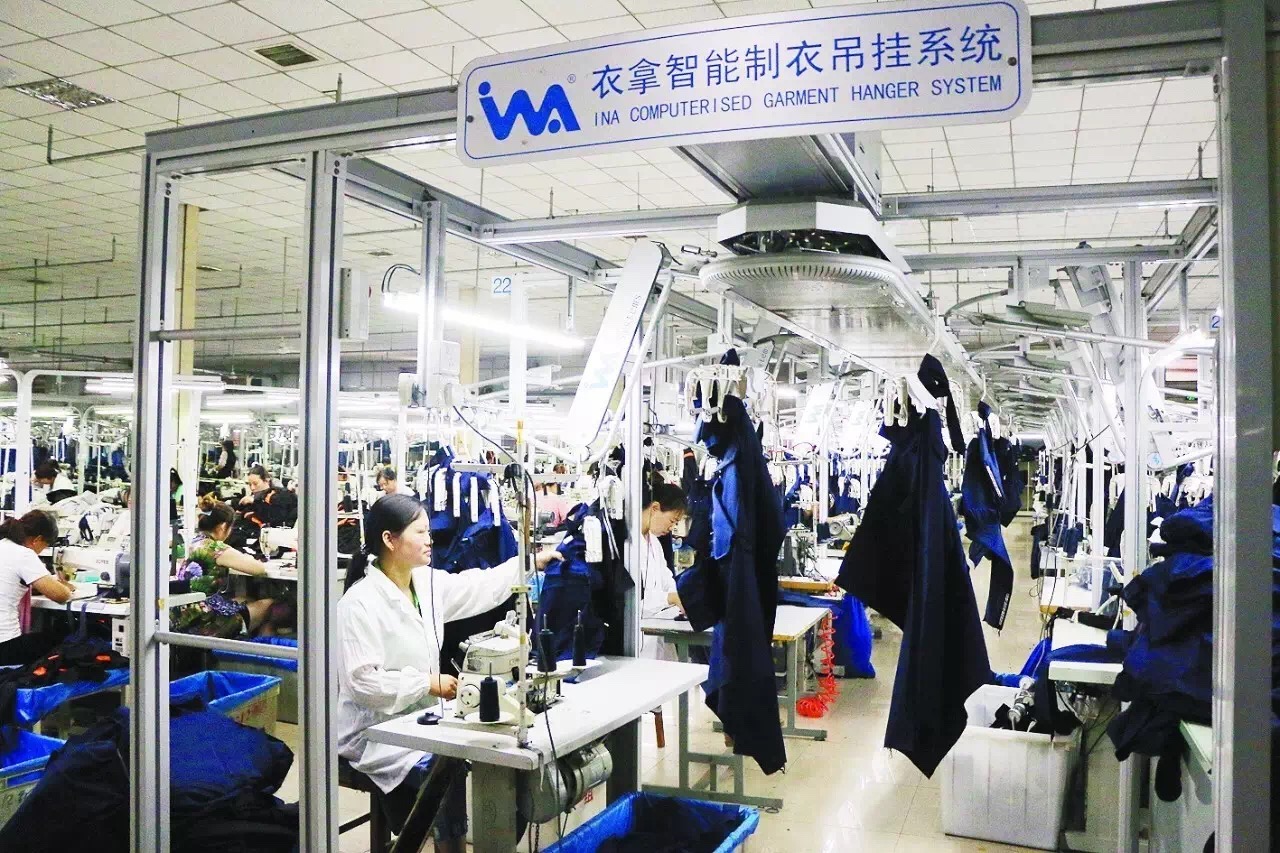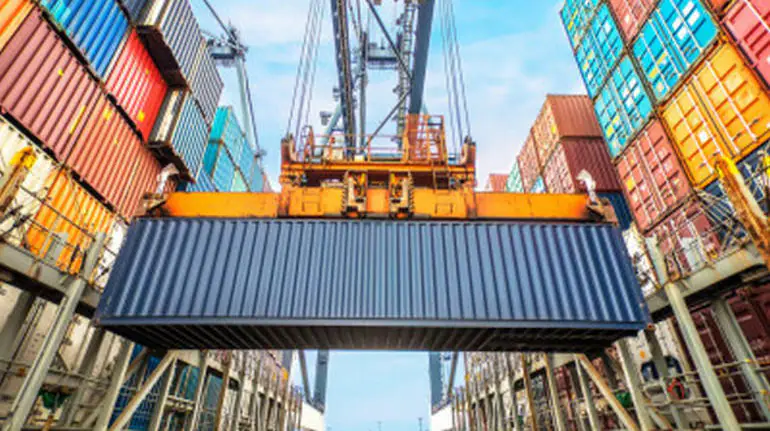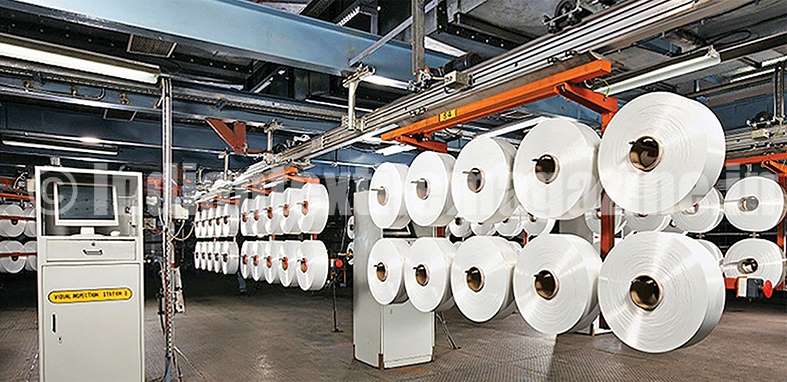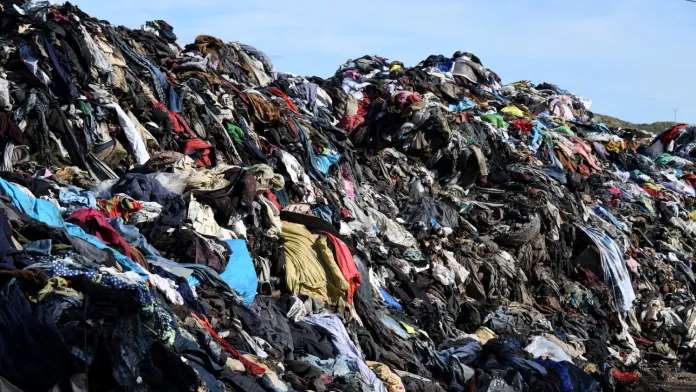FW
In Raleigh, North Carolina, the 2024 PFAS in Textiles Conference will convene on May 2-3, 2024, addressing the pressing issue of per- and polyfluoroalkyl substances (PFAS) in textile manufacturing. This gathering at the StateView Hotel aims to foster multi-stakeholder dialogue to navigate the complexities surrounding PFAS usage, align on solutions, and promote responsible innovation.
With PFAS's widespread application in enhancing water repellency and stain resistance comes growing apprehension regarding their health and environmental impacts. The conference provides a platform for researchers, advocates, and industry leaders to exchange insights, discuss policy updates, and explore safer alternatives. By emphasizing collaboration, the event seeks to propel progress towards updated best practices for PFAS use, prioritizing consumer safety while ensuring industry sustainability.
Following the success of last year's conference, which spurred promising partnerships and initiatives, organizers are eager to expand the coalition and empower attendees to take actionable steps forward. Colleagues across the textile industry are encouraged to participate in shaping a more responsible and sustainable future for PFAS usage.
The Naia™ Renew cellulosic fiber from Eastman has achieved Global Recycled Standard (GRS) certification. This recognition underscores Naia™ Renew's commitment to certified recycled content, stringent environmental practices, and ethical standards. The debut production of GRS-certified yarn marks a pivotal moment for Eastman, signaling its dedication to sustainable textile production and meeting customer demands for eco-conscious materials.
Jason Keller, Product Manager, Naia™' says, the GRS certification, administered by Textile Exchange, reinforces Eastman's sustainability commitment and enhances transparency across the supply chain.
Textile Exchange's June 2023 announcement regarding its Alternative Volume Reconciliation (VR2) policy expansion to include gasification technology aligns with Eastman's innovative approach to molecular recycling. Gasification, integral to Eastman's carbon renewal technology, broadens the scope of sustainable textile production, contributing to a more environmentally conscious industry.
Lacey Johnson, Manufacturing Technologist, Eastman, adds, collaborating with Textile Exchange and industry stakeholders helps drive awareness and acceptance of molecular recycling, positioning Naia™ Renew as a frontrunner in textile sustainability.
Eastman's collaboration ethos extends beyond policy advocacy to fostering partnerships with global industry leaders. By engaging with associations and stakeholders, Eastman champions innovation and promotes sustainable practices throughout the textiles sector.
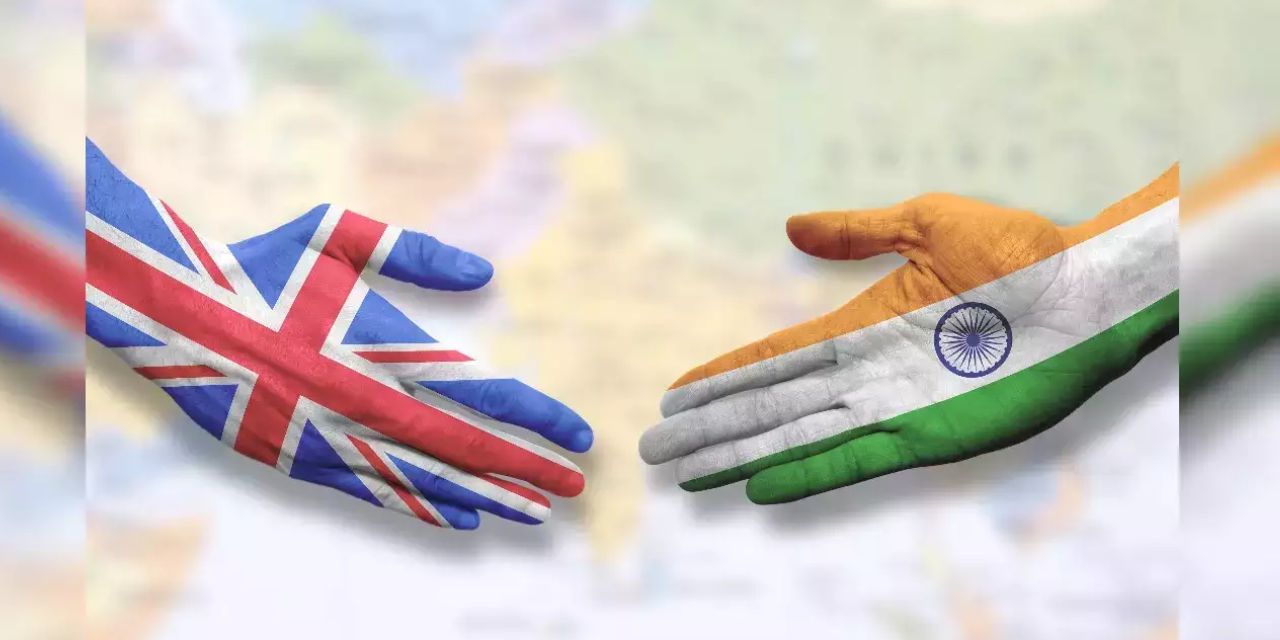
India and the UK are inching closer to a Free Trade Agreement (FTA), with potential significant impacts on the textile and apparel industry. While negotiations are ongoing, there are numerous anticipated effects on both imports and exports from this perspective. Data from the Global Trade Research Initiative (GTRI) suggests a potential $5 billion gain for India's textile and apparel exports due to the FTA.
Boost for Indian textile exports
Tariff reductions will be one of the most important effects. The UK currently imposes 4-12 per cent tariffs on Indian textiles and apparel. FTA-driven tariff reductions could make Indian products more competitive, boosting exports.
The UK is a major apparel market valued at $73.5 billion in 2022. Easier market access could open doors for Indian manufacturers, especially in segments like women's wear and home textiles. For example, as per WTO stats Bangladesh, which has an FTA with the UK, saw its apparel exports grow 30 per cent in 2021, highlighting the potential benefits for India as it could replicate this success with the UK market. The UK's growing demand for ethically sourced and sustainable clothing could benefit Indian producers who prioritize these practices.
Challenges for Indian textile imports
However, the FTA could increase competition as lower tariffs could make UK-made textiles and apparel more affordable in India especially those producing similar products at higher costs, posing competition to domestic manufacturers. Job displacement is another worry. Concerns exist about potential job losses in the Indian textile industry, particularly in segments where UK imports have a cost advantage. As Sanjay Jain, President of the Confederation of Indian Textile Industry states, "The FTA should be designed to ensure a level playing field and not lead to job losses in the Indian textile sector."
In fact, as per Peterson Institute for International Economics Vietnam's FTA with the EU led to a 10 per cent decline in its textile and apparel exports due to competition from European producers. India should learn from such examples and ensure adequate safeguards.
Also, compliance will be a major focus for Indian exporters. Meeting stricter UK regulations on sustainability and labor practices could be challenging for some Indian manufacturers. Indian textile producers will need to focus on quality and design to compete effectively.
Table: India-UK FTA and its effects
| Impact | Indian Textiles & Apparel | UK Textiles & Apparel |
| Tariffs | Reduced | Lower prices for consumers |
| Market Access | Easier | Supply chain diversification |
| Demand | Increased | Potential quality concerns |
| Competition | More intense | Price pressure |
Impact on UK imports
Reduced tariffs could lead to cheaper textiles and apparel imports from India for UK consumers. It will also lead to supply chain diversification. The UK could diversify its textile supply chain, potentially reducing reliance on other countries. However, some UK stakeholders worry about potential quality issues with cheaper Indian imports.
However, experts caution tariff reductions alone won't guarantee success. As India needs to focus on:
• Improving product quality and design.
• Enhancing supply chain efficiency and reducing production costs.
• Investing in sustainability practices to meet growing consumer demand.
• The deal should ensure inclusivity, supporting small and medium-sized enterprises (SMEs) in the textile sector.
• Addressing non-tariff barriers like technical regulations and product standards is crucial for smooth trade flow.
• The FTA should promote ethical and sustainable practices throughout the textile and apparel supply chain.
Indeed, the India-UK FTA holds promise for both countries' textile and apparel industries. However, realizing its full potential requires addressing concerns about quality, competition, and compliance. Careful implementation and strategic industry development are key to ensuring a mutually beneficial outcome.
Renewcell, the pioneering Swedish textile-to-textile recycler, has reached a significant milestone with the addition of 35 new members to its Circulose Supplier Network (CSN). The network now boasts a total of 151 spinners, weavers, textile mills, garment manufacturers, and more, marking a remarkable growth from its inception just under a year ago with 47 members. This expansion underscores a collaborative effort within the industry to address the pressing need for sustainable practices in clothing production.
The latest cohort includes a diverse range of suppliers, comprising vertical operations, yarn spinners, garment manufacturers, denim, and home textile mills. Among them, Brushes & Needles from Sri Lanka and TexComs from Indonesia stand out for their dedication to developing innovative and sustainable textile solutions leveraging Circulose technology. Their commitment reflects a growing consumer demand for eco-friendly products and a shift towards sustainability in the fashion industry.
Strategic partnerships formed across South Asia, Southeast Asia, and Turkey further solidify Renewcell's global footprint. With a focus on establishing Circulose manufacturing hubs in key regions, the company aims to streamline the supply chain and enhance accessibility to sustainable materials. The partnership with Birla Cellulose in India exemplifies this strategy, emphasizing the importance of localized production for meeting market demands effectively.
Tricia Carey, Chief Commercial Officer at Renewcell, emphasizes the significance of geographical diversity in serving the evolving needs of brand partners. By offering end-to-end manufacturing solutions tailored to specific regions, Renewcell aims to drive continuous development and promote sustainable practices throughout the industry.
Renewcell's commitment to sustainability extends beyond its supplier network, with a mission to replace virgin manmade cellulosic fibers and enhance the properties of recycled cotton. With Turkey emerging as a focal point due to its significant cotton textile market, partnerships with mills in the country play a pivotal role in advancing these efforts.
The Circulose Supplier Network embodies the collaborative spirit necessary for building a circular system in the textile industry. Karla Magruder, Founder of Accelerating Circularity, underscores the importance of such initiatives in driving the transition towards circularity and facilitating market scalability.
With 151 members now part of the network and Circulose gaining traction throughout the value chain, Renewcell paves the way for economies of scale in sustainable textile production. Brands, both large and small, can now access fibers, yarns, and fabrics made with Circulose, marking a significant step towards a more sustainable future for fashion and home industries.
Slated to be held from June 04-08, 2024 at the Istanbul Tüyap Fair and Congress Center, the ITM 2024 Exhibition, promises to be a cornerstone event in the textile industry.
Centered on the theme ‘Discover the Future,’ the event will showcase the latest advancements in textile machinery and technologies from over 1,200 domestic and international companies, attracting thousands of qualified buyers. It will foster innovations, facilitate new business connections, and shape the textile landscape of tomorrow.
With an aim to highlight innovative, nature-protecting, and pioneering digitalisation technologies geared towards sustainability, the trade fair will showcase a diverse array of products and services spanning weaving, knitting, yarn, digital printing, finishing, and denim technologies. Company owners will have the opportunity to engage with experts, gather insights on cutting-edge technologies, and chart the course for their future investments and product development.
ITM 2024 serves as a catalyst for the textile machinery sector's growth, fostering new investment decisions and partnerships worldwide. This year, the event is poised to attract global investors and delegations from textile-active regions like Pakistan, Bangladesh, Uzbekistan, India, and Egypt.
Responding to increased demand, the ITM Team has expanded the exhibition space, increasing the number of halls from 12 to 13. This expansion accommodates returning exhibitors who seek larger stands and welcomes new participants, enabling them to showcase a wider range of offerings.
A highlight of the event is the 'Denim Technologies Special Section,' relocated to Hall No. 11A to facilitate proximity to related sectors like dyeing and finishing. This section will showcase sustainable innovations and cutting-edge technologies in denim production, providing invaluable insights for buyers and brands seeking eco-friendly solutions.
For convenience, the trade fair has implemented an online invitation system that allows visitors to register easily via the ITM 2024 website. Upon completing the visitor information form, applicants receive an e-invitation via email, granting expedited access to the exhibition.
Pakistan’s leading textile exporter Interloop recorded a 115 per cent rise in profits amounting to to Rs 9.86 billion during the H1FY24 ending on December 31, 2024.
The company's net sales surged by nearly 40 per cent to Rs 73.98 billion during the first half of the fiscal year 2024 (1HFY24), compared to Rs 52.92 billion in the preceding year. Interloop’s gross profit surged by 66 per cent to Rs 22.63 billion during the period. Consequently, the company's profit margin rose to 30.6 per cent, compared to 25.8 per cent in same period last year.
However, operating expenses saw a significant rise of over 40 per cent Y-o-Y, totaling Rs 8.14 billion in 1HFY24. Notably, the company experienced exponential growth in 'other income,' reaching Rs 332.32 million in 1HFY24, compared to just Rs 15 million in same period last year. Conversely, the cost of finance increased to Rs 4.8 billion in 1HFY24, representing an 85 per cent surge due to significant increases in interest rates during the year.
As a result, the profit before tax increased by 107 per cent to Rs10.88 billion in 1HFY24, compared to Rs 5.26 billion in corresponding period last year.
Established in 1992, Interloop became listed on the country's stock exchange in 2019. The company operates as a vertically-integrated, multi-category firm manufacturing hosiery, denim, knitted apparel, activewear, and producing yarn for textile customers. It is one of the largest exporting firms in Pakistan and ranks among the largest listed companies on PSX.
The 28th edition of the Dhaka International Trade Fair (DITF) concluded on a high note with a significant rise in export orders and robust sales figures, as per the report by the Ministry of Commerce. The event recorded a 17 per cent rise in export orders to Tk 392 crore. Moreover, sales during the event increased by 15 per cent Y-o-Y to approximately Tk 400 crore.
Hosted by the Export Promotion Bureau, the month-long DITF was held at the Bangladesh-China Friendship Exhibition Centre in Purbachal, Dhaka. This year, the fair featured 304 stalls and pavilions, with nine operated by foreign companies representing India, Singapore, Hong Kong, Indonesia, and Turkey.
During the closing ceremony, Ahsanul Islam Titu, State Minister for Commerce announced plans to diversify the DITF in the upcoming years to bolster the country's exports. He emphasised organising seminars and symposiums to attract more foreign buyers and assured comprehensive arrangements to facilitate increased participation from both foreign and local business representatives.
Titu underscored the significance of these efforts in accelerating Bangladesh's export earnings, aiming to achieve the target of $100 billion by 2030. At the event, 41 stalls were honored with crests across various categories to recognize their outstanding performance.
The closing ceremony was presided over by Tapan Kanti Ghosh, Secretary, Ministry of Commerce. It also featured speeches from Mahbubul Alam, President, Federation of Bangladesh Chambers of Commerce and Industry, and AHM Ahsan, Vice-Chairman, Export Promotion Bureau.
Valued at $480,991.8 million in 2019, the global plus size clothing market is projected to reach $696,712.1 million by 2027, growing at a CAGR of 6.9 per cent from 2021 to 2027, according to a recent report by Allied Market Research titled ‘Plus Size Clothing Market by Type, Gender, Age Group, and Price Point: Global Opportunity Analysis and Industry Forecast, 2021-2027.’
The surge in demand for plus-size clothing is attributed to the increasing obese population, heightened consumer confidence, and a greater number of brands offering plus-size garment ranges. However, challenges such as high pricing for retailers and manufacturing complexities somewhat restrain market growth. Nevertheless, the rise in availability through omnichannel retail and expanding brand presence present lucrative opportunities for market players.
Comprising nearly one-third of the global plus-size clothing market share in 2019, the casual wear segment is poised to maintain its dominance through 2027, reaching an estimated $220,779 million, driven by growing consumer adoption for social occasions. Meanwhile, the sportswear segment is anticipated to witness the fastest CAGR of 6.4 per cent by 2027, fueled by evolving consumer preferences and the popularity of athleisure sportswear.
In terms of gender, the male segment is forecasted to reach $338,032.8 million by 2027, with a CAGR of 6.8 per cent. This is attributed to a significant obese male population and substantial spending on plus-size clothing. Conversely, the female segment is expected to register the fastest CAGR of 7.50 per cent throughout 2027.
Geographically, accounting for over one-third of the global plus-size clothing market, North America is projected to reach $250,816.3 million by 2027, driven by the region's large obese population and high consumer spending. Additionally, the Asia-Pacific region is expected to exhibit the fastest CAGR of 6.50 per cent during 2020 to 2027, fueled by increasing caloric intake among middle and high-income households.
A few key players in the global plus-size clothing market include H&M (Hennes & Mauritz AB), Ralph Lauren Corporation, Adidas AG, Puma SE, Nike, Inc., ASOS plc, Capri Holdings (Michael Kors), WHP Global (Anne Klein), Punto Fa SL (Mango Inc.), and Under Armour, Inc.
Archroma, a global leader in sustainable specialty chemicals, is set to debut its cutting-edge innovations, notably the Super Systems+, at Bharat Tex 2024. This move aims to empower textile and apparel brands as well as mills in India to enhance their economic viability and environmental stewardship.
The Super Systems+ represent a comprehensive suite of end-to-end solutions, integrating fiber-specific processing techniques and intelligent effects. From sizing to finishing, these systems offer measurable environmental benefits, including resource savings and reduced environmental footprints. Anjani Prasad, Vice President of South Asia at Archroma Textile Effects, highlighted India's pivotal role in driving global sustainability initiatives in the fashion industry.
At Bharat Tex 2024, attendees can explore not only the Super Systems+ but also innovative tools like The SafeEdge and the Archroma ONE WAY Impact Calculator. The SafeEdge is an online portal providing real-time access to product-related regulatory information, while the Impact Calculator facilitates process simulation and cost analysis, covering factors like resource utilization and carbon dioxide emissions.
Bharat Tex itself stands as a beacon of sustainability and style, attracting industry leaders from around the globe. As the world's largest textile exposition, it serves as a platform where tradition meets technology. Scheduled from February 26-29 in New Delhi, India, Bharat Tex 2024 promises to be a showcase of sustainable solutions and cutting-edge fashion trends.
Eltex of Sweden, a trailblazer in integrating electronic sensors into the weaving machinery industry, commemorates its 60th anniversary this month. Since its inception in 1964, Eltex has been at the forefront of enhancing weaving machine efficiency, with its sensor technology playing a pivotal role in elevating production speeds from 150-200 picks per minute in the 1960’s to a staggering 1,200 picks per minute today.
Founded by Åke Rydborn and Ragnar Henriksson, Eltex initially aimed to address the challenge of detecting broken or missing weft yarns during production. Their innovative solution, the world's first electronic weft-stop-motion, debuted at the 1963 ITMA exhibition in Hannover, Germany. This innovation laid the foundation for Eltex's journey, starting from a modest 12 sq m workshop in Älmhult, Sweden, before expanding to a modern 3,000 sq m plant by 1968.
The company's global footprint expanded rapidly, buoyed by the introduction of pioneering technologies such as the all-in-one printed circuit board (PCB) for sensor systems in 1971. Alf-Gunnar Sibbeson, a longstanding employee, reminisces about the early days when Eltex's expertise was in high demand due to the scarcity of electronics specialists in mills and machine builders' teams.
Eltex's evolution continued with strategic expansions into the USA and Ireland, diversifying its product portfolio to include energy control devices, safety systems for food handling, and military-grade battery chargers. Milestones like optical arrival detectors for air-jet weaving machines and the QTV system for warp preparation underscored the company's commitment to innovation.
Recent innovations, such as the Eltex EyETM system for continuous yarn tension monitoring and the ACT and ACT-R units for yarn tension control, demonstrate Eltex's unwavering dedication to enhancing textile production quality and efficiency. CEO Brian Hicks acknowledges the pivotal role of staff, customers, and suppliers in Eltex's success, reaffirming the company's commitment to customer service and technological advancement.
Since its management buy-out in 2007, Eltex has been led by Brian Hicks, Seamus O'Dwyer, and Jonathan Bell, culminating in the formation of Eltex Global Holdings in Ireland. With its headquarters in Osby, Sweden, and primary production facility in Ireland, Eltex remains at the forefront of driving innovation in the weaving machinery industry.



